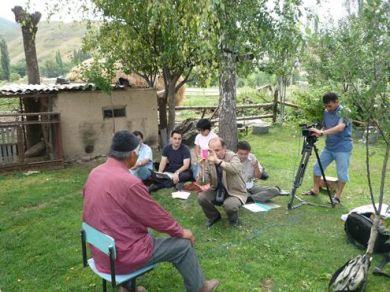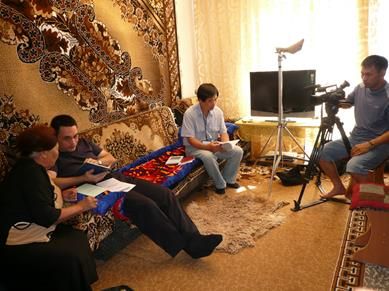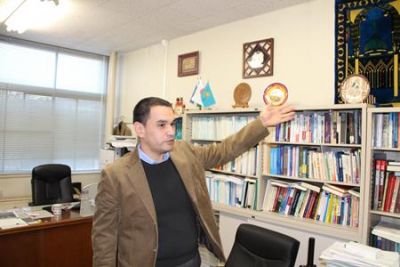TSUKUBA FUTURE
#051 Central Asia—a land with great potential for engagement
Associate Professor DADABAEV Timur, Faculty of Humanities and Social Sciences

Until relatively recently, Japan lacked familiarity with Central Asia, but at the moment it has become a key region for diplomatic relations with closer links being developed in the fields of resource development and education. However, this region, with its ethnic and linguistic diversity, has a complex historical background, having once been part of the former Soviet Union. Prof. Dadabaev suggests that Japan should deepen its understanding of the peoples and cultures of Central Asia in order to create mutually beneficial relationships.
Until relatively recently, Japan lacked familiarity with Central Asia, but at the moment it has become a key region for diplomatic relations with closer links being developed in the fields of resource development and education. However, this region, with its ethnic and linguistic diversity, has a complex historical background, having once been part of the former Soviet Union. Prof. Dadabaev suggests that Japan should deepen its understanding of the peoples and cultures of Central Asia in order to create mutually beneficial relationships.


Interviews
The second stage is the analysis of the data collected using the methods described above. The researchers analyze their own data and publish it in report or book form. Researchers do not necessarily interpret their data in the same way, so it is important to lay out multiple perspectives and opinions. This diversity helps to advance academic study, and this data is set to be published at a future date. Similar research outcomes pertaining to Europe or Asia are already stored in databases, but this is the first time such research has been undertaken in Central Asia. Research will expand once this inter-generational and inter-regional data is shared.
There is a reason for undertaking research into Central Asia in a place as far away as Japan. Support for research locally is paltry, and in addition, research of the Soviet period is deemed to be criticism of the present government, leading to fears that research activities may be curtailed. Only a third party can carry out objective surveys and disseminate the results internationally. Prof. Dadabaev discusses ideas and possibilities for diplomatic policy gleaned from his research with embassy staff, and is proactive in turning these ideas into reality. It is precisely because this research is carried out in Japan that it can be utilized in the development of relations with Central Asia.

Conversations in Prof. Dadabaev's office, which is decorated with Uzbek crafts, naturally veer towards the subject of Uzbekistan.
Prof. Dadabaev, who was a high-school student when Uzbekistan gained its independence from the Soviet Union, specialized in diplomacy at university as he wanted to contribute to the building of a new country. He was offered employment as a diplomat in 1995, but he deferred and came to Japan to continue his studies. At first he lived in Kyoto, a city with a reputation as a difficult place for outsiders to live in, but he settled in surprisingly smoothly because Uzbekistan has a culture of close-knit local communities very similar to the neighborhood associations common in Japan. Also, Uzbek grammar is very similar to Japanese and he found he could be understood if he simply substituted Uzbek words with Japanese ones. Prof. Dadabaev originally intended to complete his studies in Japan and then return to Uzbekistan to take up a diplomatic post, but while at university he realized that analyzing and explaining the range of issues which are necessary for international understanding would contribute to diplomacy more than disseminating messages from the government, and this led him to switch to research. His original plan to stay in Japan for eighteen months has now extended to twenty years, during which relations between Japan and Central Asia have steadily intensified. Prof. Dadabaev's role, as instigator of a unique form of Japanese diplomacy in the region, is growing ever more important.
Article by Science Communicator at the Office of Public Relations


